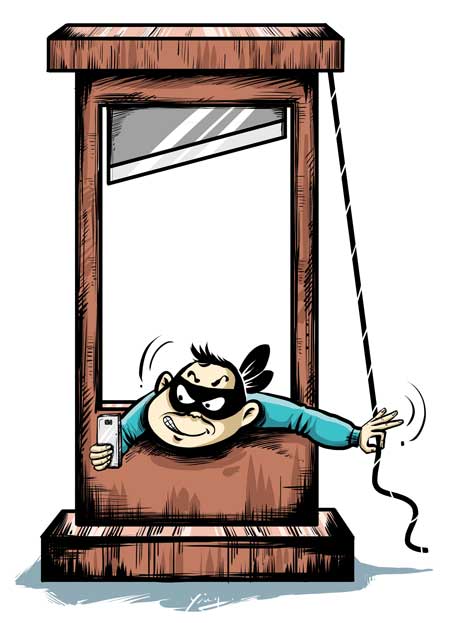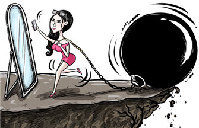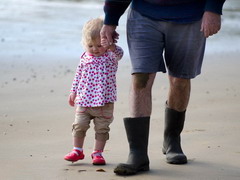Selfies and the art of staying within limits
By Raymond Zhou (China Daily) Updated: 2014-08-30 10:37
 |
|
Wang Xiaoying/China Daily |
Pictures can incite actions, as the ability to instantly broadcast one's image pushes boundaries of what is ethically or legally acceptable.
Security cameras in public spaces are increasingly helping law enforcement officers in identifying criminals in the act of committing crimes, but it gains an ironic twist when photos of wrongdoings are taken and made public by the perpetrators themselves.
On August 23, a driver in Xuzhou, Jiangsu province, blogged about his "first time drunk driving," saying a policeman friend had escorted him safely home. As if to verify his claim, he uploaded a photo of beers and food in the vehicle. As netizens were shocked and went looking for his real identity, he deleted the blog and said he was just joking. Xuzhou police said they were investigating.
A few months ago, a bank manager in Shenzhen, Guangdong province, went one step further. He not only uploaded a selfie of drunk driving to his microblog, but alerted police to it. After the online public uncovered a dozen more of his traffic violations, he turned himself in, saying it was stupid of him to challenge the police.
Among one of the most notorious recent selfies was one by a man named Chen Haisheng - a bloody picture of him slaughtering a wild donkey in the Tibetan wilderness. He was obviously very proud of his feat as he was shown in full pose. After he was arrested for killing the endangered animal, he said he used his vehicle to run it down and then gouged out its intestines. He gave the meat to fellow workers at a power company, he said. Chen awaits trial.
The convenience of selfies enabled by technology is giving people a new platform for self-expression. While most people use digital gadgets to capture themselves enjoying beautiful scenery or delicious food, others want to share their moments of adventure. Adventure is a common thread in the above three cases.
Not all photo takers or uploaders may be aware of the legal ramification of their actions, such as the animal abuser who might not know the wild donkey is protected by law. But knowing it was illegal may have exhilarated them rather than stopped them from carrying out what they were doing.
A public campaign to crack down on drunk driving has been in place across China for years now. Assuming the protagonists in the first two incidents were not joking, they could have been emboldened by alcohol into a temporary spasm of bravado. Even if they were not driving but drunk, it could still be the effect of intoxication that they willingly subjected themselves to the prying eyes of the police and prosecutors.
For more X-Ray, here












